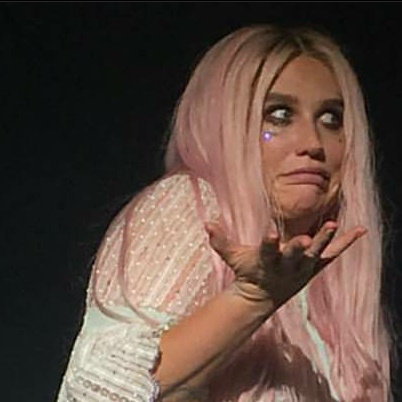There is an argument that free will doesn’t exist because there is an unbroken chain of causality we are riding on that dates back to the beginning of time. Meaning that every time you fart, scratch your nose, blink, or make lifechanging decisions there is a pre existing reason. These reasons might be anything from the sensory enviornment you were in the past minute, the hormone levels in your bloodstream at the time, hormones you were exposed to as a baby, or how you were parented growing up. No thought you have is really original and is more like a domino affect of neurons firing off in reaction to what you have experienced. What are your thoughts on this?
I think the question is ill defined. The answer is entirely dependent on the definitions you use and i don’t think answering the question really leads to a meaningfully different view of the world or has any real intellectual consequences.
It’s free will as long as you don’t know and/or control all of that chain of causality.
I agree that there is no free will, but to act as if that is true is pointless. Nihilism isn’t useful. If it makes you feel better, you are doing what you would have done regardless even if there was free will. I don’t think the fact every action is predetermined matters much. If anything, it makes me have compassion for the worst people, who arguably were fated to be what they are because of the domino effect.
I often wonder if the dominos will ever fall in a way that guarantees us all a positive outcome. Can we heal our monsters? So that every domino thereafter creates no more?
¯_(ツ)_/¯
Poetically, you are the universe trying to understand itself.
It’s not even wrong.
Yes.
I observe free will directly. Watch: I will choose of my own free will to type a tilde at the end of this sentence instead of a period~ Behold free will.
Everything that says we don’t have free will depends on indirect observations that blatantly make faulty assumptions. Do our senses accurately tell us about the state of the universe, and ourselves within it? Are our interpretations of this infallible?
Most egregious is the assumption that classical mechanics governs the mind, when we know that at a deep level, classical mechanics governs nothing. Quantum mechanics is the best guess we have at the moment about how objects work at a fundamental level. Many will say neurons are too big for the quantum level. But everything is at the quantum level. We just don’t typically observe the effects because most things are too big to see quantum effects from the outside. But we don’t only look at the brain from the outside.
Nor can we say that the brain is the seat of consciousness. Who can say what the nature of reality is? Does space even exist at a fundamental level? What does it mean for consciousness to be in a particular place? What’s to say it can only affect and be affected by certain things in certain locations? Especially when we can’t pinpoint what those things are?
So yeah I believe in free will. It’s direct observation vs. blatantly faulty reasoning.
Quantum mechanics only says that you can’t predict the spin of certain particles. Those particles are at a vastly different scale of the things we see in everyday life. Yes, a photon might suddenly change direction and I won’t see it because it’s a wave function, right? But only at a really small odd. I bet it has never happened to me or anyone in my continent, if not the entire human race in all time. Let alone neurones in my brains experiencing quantum effects.
Quantum mechanics dismisses no argument of determinism because how low the possibilities are.
Even if macroscopic particles do behave randomly, it is still a random behaviour, not your decision.
Tl;Dr, yes*
I find this discussion to be an exercise in frustration. There’s a lot of philosophical jargon that gets glazed over and nuances that often get ignored. I also think it’s an incredibly complex and complicated topic that we simply do not have enough information available to us to determine in a scientific manner.
For instance: what kind of “free will” are we talking about? Often it’s “Libertarian Free Will,” that is, absolute agency uninfluenced by any external factors. This much is disproven scientifically, as our brains run countless “subconscious” calculations in response to our environment to hasten decision making and is absolutely influenced by a myriad of factors, regardless of if you’re conciously aware of it or not.
However, I think that the above only “disproves” all notions of free will if you divorce your “subconscious” from the rest of your being. Which is where the complication and nuance comes in. What is the “self?” What part of you can you point to as being the “real you?”
From a Christian perspective, you might say the “self” is your soul, which is not yet proven by science, and thus the above has no bearing on, as it cannot take the soul into account. But from the opposite side of the spectrum, from a Buddhist perspective, there is no eternal, unchanging, independently existing “self.” And as such, the mind in its entirety, concious awarness or not, is just another part of your aggregates, and from that perspective it can be argued that a decision is no less your own just because it was not made in your conscious awareness.
With my ramblings aside, I am a Buddhist and so my opinion is that we do have free will, we’re just not always consciously aware of every decision we make. And while we cannot always directly control every decision we make, we can influence and “train” our autopilot reactions to make better decisions.
Just based on my observations of my life, I seem to have the ability to choose to do or not do things, and that’s good enough for me. Is my choice just part of the infinite universe’s fixed progression through time and I would have done what I did regardless? Are there infinite parallel universes where parallel versions of me exist that have collectively made every choice I can possibly make? Don’t care. I feel like I have free will and IMO that’s what’s most relevant to my life in this universe.
I believe we do not truly have agency but have evolved to think and act as though we do. Since inputs to each choice are likely infinite (probably uncountable as opposed to countable), the lack of agency is difficult to observe.
No, we don’t have free will. HOWEVER, I don’t think that arguement will hold up in court.
It can’t hold up in court. It ultimately does not matter whether someone is compelled to do evil, or chooses to do evil. Society must be protected in either case
There’s no evidence for free will. Every physical process involved in the function of our bodies and brains has so far proven to be deterministic in every way we can verify. That doesn’t mean you can’t have an original thought though, it just means that any original thought you have was necessarily going to happen and couldn’t possibly have happened any other way. It’s fate.
The question is meaningless, the answer doesn’t affect reality, unless you propose an external mind that is controlling or at least influencing our decisions.
Nope, I don’t.
Doesn’t really matter, though. We certainly have the illusion of free will, we behave as if it exists, so it doesn’t actually matter in a practical sense.
It is fun to think about!
In my opinion humans are biological machines reacting to stimulus based on previous experience.
If we could theoretically perfectly map the brain and understand it, we could predict what a person would do in response to a specific stimulus.
At least that is how I have come to understand my existence.
Doesn’t mean I am off the hook for my poor decisions either. I still have to make the decision, even if theoretically we already knew what I would do.
Yeah, this is pretty much exactly how I feel about it. The universe is nothing but dead matter being pushed around by blind force, and any sense of agency is just an emergent phenomenon that exists as an illusion in the brain without having any actual bearing on reality. If you perfectly understood all of the forces and matter involved, you could perfectly predict what any given human (or anything system at all) would do.
That said, I also believe that it’s a completely useless idea when you’re trying to navigate through life, so I mostly just keep it in the back of my head like some half-forgotten piece of trivia and spend most of my time pretending to be in control like everyone else. Cheers!
Even if the universe is nondeterministic like quantum physics suggests you still don’t have free will because your thoughts and feelings are still ruled by physical processes even when they are random.
But you don’t need physics to dispute free will. Schopenhauer already said that you may do what you want. But you cannot will what you want. Einstein used that realisation to not take everything too seriously even when people act infuriating.
I have no choice but to believe in it.






